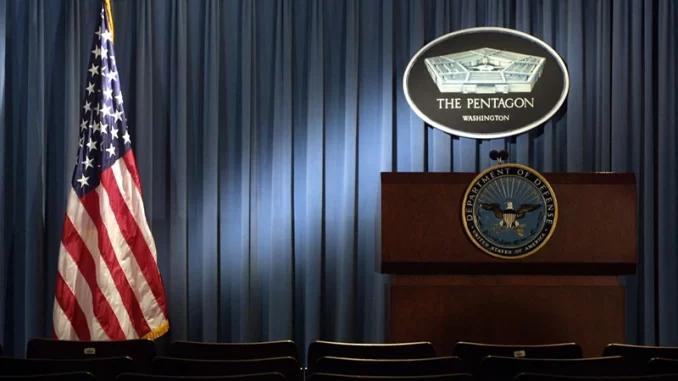

OAN Newsroom Correspondent Roy Francis
UPDATED 6:06 PM PT – Tuesday, December 20, 2022
In this edition of Twitter Files, Lee Fang talks about how despite Twitter promised to shut down covert state-run propaganda networks, the platform quietly aided the Pentagon’s online PsyOp Campaign.
Twitter has claimed for years that they have procedures set in place to detect and thwart government-backed platform manipulation, even testifying in front of Congress about their pledge to rapidly identify and shut down all state-backed operations and propaganda.
Behind the scenes, however, Twitter cooperated and even gave the U.S. military’s Online Psychological Influence Operations special protection and approval. Despite knowing that the Pentagon had propaganda accounts that used covert identities, Twitter did not suspend many for over two years, with some never being suspended.
A U.S. Central Command official (CENTCOM) sent Twitter a list of 52 Arab language accounts in 2017. The accounts were used to “amplify certain messages” and asked for verification for an account and “whitelist” ability for the others, marking six accounts as the priority. That same day Twitter officials granted those accounts the “whitelist” tag, essentially making them verified accounts without the blue check mark.
These accounts tweeted frequently about the U.S. military priorities in the Middle East. This included anti-Iran messages, promotion of the Saudi Arabia-U.S. backed war in Yemen, and U.S. drone strikes in the region.
CENTCOM then decided to cut ties with the accounts, changing the bios and using deep-fake profile pictures. One of the accounts’ bios was changed to read “Euphrates pulse.”
This was known to the high-level Twitter executives. The emails showed their knowledge of the accounts and actions, but refused to suspend the accounts. Twitter lawyer Jim Backer even jokingly sent emails regarding the accounts with one stating that the Pentagon used “poor tradecraft” in setting up its network.
Stacia Cardille, another Twitter attorney had replied by saying that the Pentagon wanted a Sensitive Compartmented information Facility (SCIF) for this information and may want to reclassify its social media activities and accounts in order to “avoid embarrassment.”
In 2020, several high-level Twitter executives and lawyers shared another list of undisclosed accounts that the Pentagon had been using. A total of 157 accounts were on that list, most of which was focused on Middle East military issues.
Also in 2020, in an email sent by Twitter’s Lisa Roman to the Department of Defense, she acknowledged a list of accounts that the DoD had previously provided and added another list that Twitter had detected. The accounts were tweeting in Russian and Arabic about Middle East military issues, especially in Syria with regards to ISIS.
Many of these were found out to be secret U.S. military propaganda accounts that continued to operate on the platform until May 2022 even longer, even though they were detected in 2020 and some potentially earlier.
In August 2022, a Stanford Internet Observatory report uncovered a U.S. military covert propaganda network that operated on Facebook, Telegram, Twitter and other platforms using fake news portals, and deep fake images. This network was used against U.S. foreign adversaries especially targeting Russia, Iran, and China.
This network accused Iran of “threatening Iraq’s water security and flooding the country with crystal meth” and harvesting the organs from Afghan refugees. One of the accounts that was identified in this network was an account that CENTCOM has asked for a whitelist tag back in 2017. The account used a deep fake for its profile image.
Twitter was cast as an unbiased hero at the time for removing this network, with the media backing Twitter’s narrative that it was applying its policies evenly and being proactive in suspending the DoD network.
In reality twitter had known about the fake accounts since 2017 and knew that they were in violation of the platform’s policies, they even assisted CENTCOM with their request to whitelist and prioritize the accounts that they had created. They waited minimum of three years before they decided to act and suspend some of the accounts, with some even remaining online with no actions against them.
Twitter officials were in constant contact with the Washington Post when the story was about to break. so when the public found out, Twitter employees celebrated because the article did not mention them or their part in the scandal but focused solely on the Pentagon.
Their actions stood in complete contrast of Twitter policies and all the actions they claim to have taken in order to maintain a fair and equal standard on the platform.





Be the first to comment